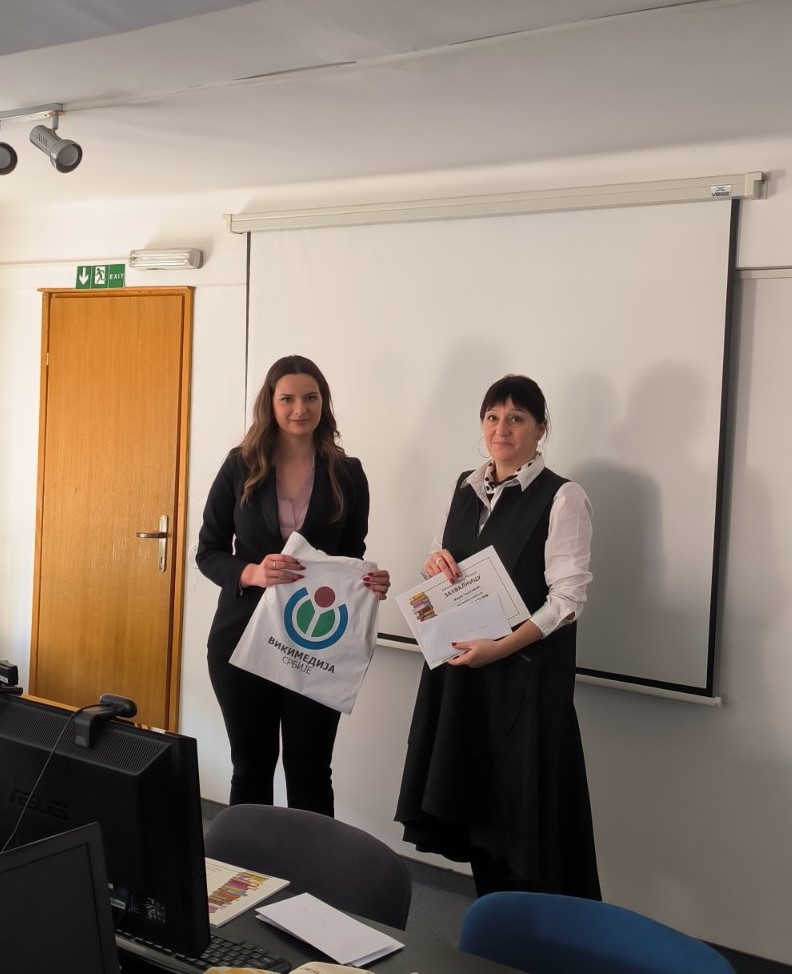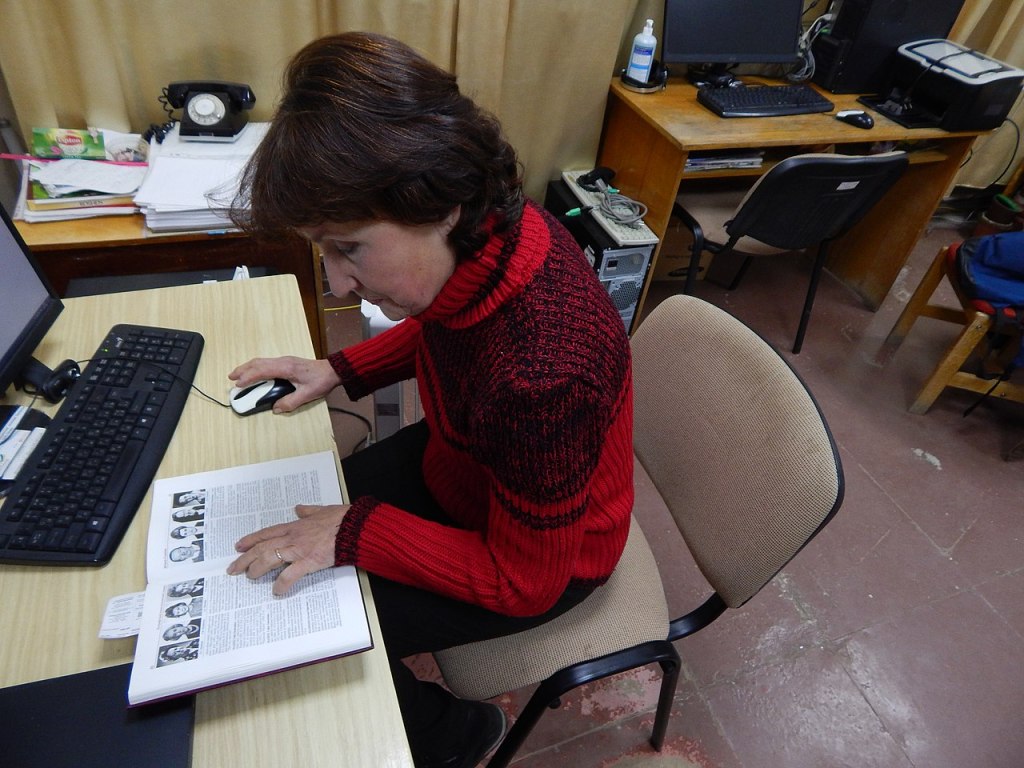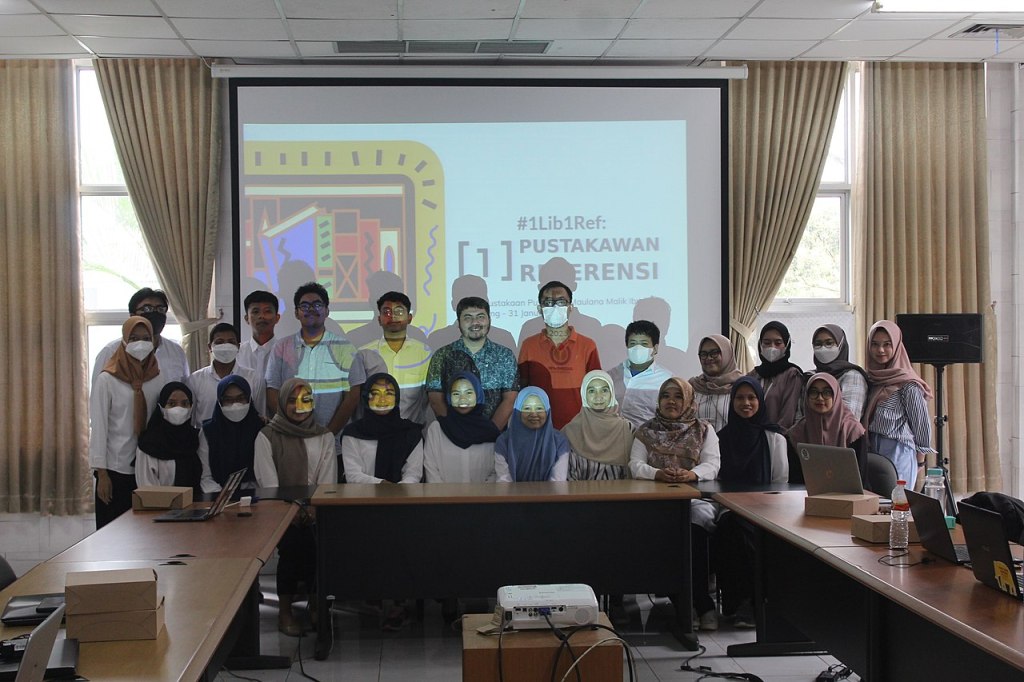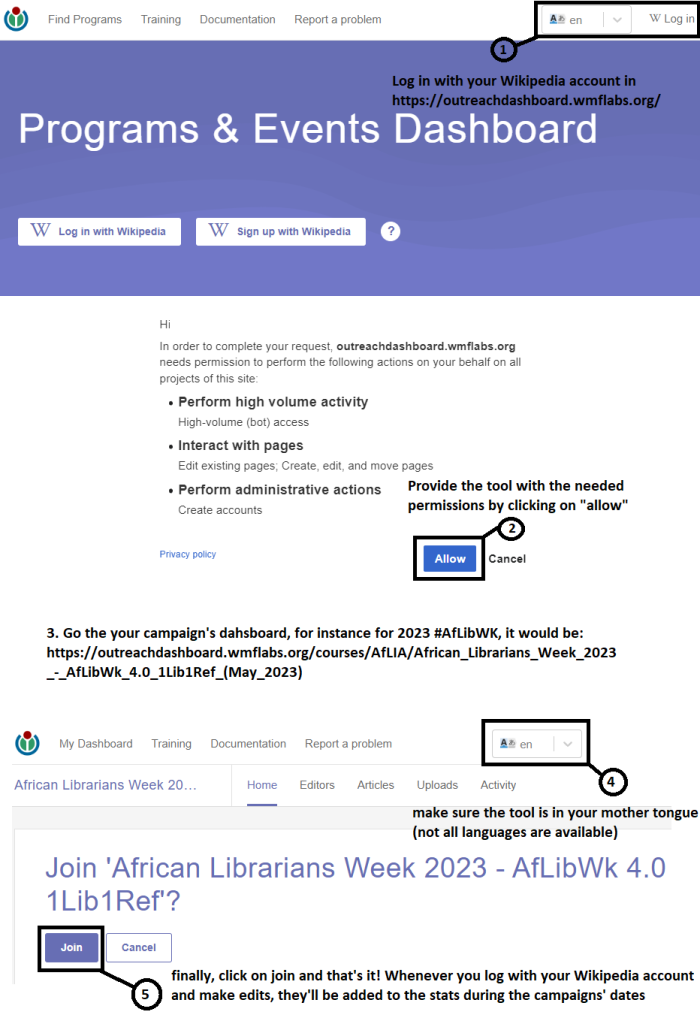The #1Lib1Ref campaign invites us –open knowledge enthusiasts, Wikimedians, book lovers, and library workers– to collaborate on verifying, increasing, and diversifying references on Wikipedia.
The campaign happens twice a year (January and May), and at the end of this post, we will tell you more about the second round. However, let’s engage on a celebratory trip for this campaign’s seventh birthday in January, by giving our traditional statistics a twist to travel the #1Lib1Ref globe in ten stops:
Serbian
Let’s start with our contributions-champions in Serbia, which celebrated the end of the campaign with 38 editors who edited 5,461 articles and added 12,689 references! We also love to note that the three top editors are a dedicated pedagogy student, a brilliant librarian, and a member of Serbia’s Senior Citizen project. It is clear to us: a diverse team makes a great one!

Image by Gzanag, CC BY-SA 4.0
The wider CEE region
While we’re close, let us also celebrate other members of the CEE region. Polish Wikipedia contributors did around 4,000 edits in more than 2,000 articles; 29 editors of Romanian Wikipedia edited more than 600 pages; 16 editors of Bosnian Wikipedia gave reliable sources to more than 160 pages; we also salute the five editors in both Serbo-Croatian and Croatian Wikipedias; the four enthusiastic Czech Wikipedia’s editors, and the four Macedonian Wikipedia editors who managed to edit more than 700 pages! Let us close this CEE trip with a special mention to Ukrainian editors, who closed this year’s campaign with more than 50 users, and made over 1000 useful edits in 700+ articles on various topics.

French
Let us move now to the French-speaking space, the second language on the board thanks to the editors at the National and University Library from Strasbourg, Librarians from Bordeaux Montaigne University, the Aix-Marseille Université, the École nationale supérieure des sciences de l’information et des bibliothèques, editors in the museum and library of Les Champs Libres in Rennes, the Musée national des beaux-arts du Québec, Université de Lorraine, Bibliothèque de l’Assemblée nationale du Québec, and the Bibliothèque Universitaires des Langues et Civilisations (that we know of!). This community has even created a podium, and it is exciting to see how they’re even planning to join the second round in May!
English
The 28 editors of the English Wikipedia have also made great contributions, and at least half of them are from the State Library of Queensland. Thanks to them, we now have verifiable information on 195 articles about the second-largest of the Australian states!
Catalan
We fly to Catalonia and the 11-year-old Amical Bibliowikis project in which more than 200 libraries make knowledge accessible through Viquipèdia. To get a taste of one of their many long-standing partnerships, we can read this post about the Learning and Research Resource Center’s 45 power participants (who added 1,916 references!). And even if last year’s record was not overcome, it is so nice to see the Autonomous University of Barcelona’s library’s self-improvement spirit, who wished to surpass the more than 4,000 references the Catalan team added in 2022.
Spanish
And while we’re near, why not see Wikimedia Spain’s post on the campaign? There are many interesting highlights in this text, like the fact that from the local languages, Extremaduran Güiquipedia is now third on the board with 15 articles, 23 editions, and 3 editors! Another take-away lesson is the importance and impact of workshops at Ignacio Aldecoa’s Library, or at the Amurrio Library, which had a direct impact on the stats, so kudos to Arantxa & Mentxu!
Indonesian
After a great trip, we arrive in Indonesia to greet the 21 users who improved more than 100 articles (all the way from Agriculture in the country and art museums to earth worms and Lake Sipin)

Image by Wikimedia Indonesia, CC BY-SA 4.0
Malay
We drive 92 hours and say hi to the 40 editors who have enabled readers from Malayan Wikipedia to easily access reliable information on Organic Agriculture, Maize, Sabah’s people culture, and so much more!
And more!
We’re almost done, so let’s hop on an imaginary satellite and pass by editors in Swedish, German, Euskera, Hebrew, Japanese, Chinese, Belarusian, Portuguese, Aragonese, Arabic, Asturian, Breton, Galician, Montenegrin, Dutch, and Norwegian Wikipedias. No matter how small the contribution, in this disinformation era, they donated their time to make knowledge reliable, and verifiable, one reference at a time.
Ever onward
Our trip ends on a pier and the boat for #1Lib1Ref in May is about to depart, do you want to join? Here’s how:
Africa
As in other years, the African Library and Information Associations and Institutions (AfLIA) is back with the Africans Librarians Week (#AfLibWk) from the 14th to the 26th of May – if you want to join this wonderful initiative to add “African Knowledge to the World”, do check out there 7 steps under “How to participate” and if you’re unsure of how to start, AfLIA has your back with wonderful resources (a power point on how to create an account, a one-image manual on how to add references to Wikipedia, and more!) – they’ll give out prizes to top contributors!
Unsure how to join a Dashboard campaign? Here’s a one-pager with 5 steps to join the campaign:

Image by SEgt-WMF, CC BY-SA 4.0
Latin America
Latin America is also back in the game, with the #1Bib1Ref hashtag! If you want to join the campaign you can learn all about it here: https://es.wikipedia.org/wiki/Wikipedia:Encuentros/1bib1ref_2023, make sure you check out the wonderful resources they have prepared for us as well, Wikimedia Argentina’s 2 min video on how to add references (in Spanish), or BiblioColmex’ 2 pages manual on how to use Citation Hunt a multiple languages tool for suggesting articles with missing citations to be added.
Argentina, Mexico, and Uruguay have also their dashboards up, so be sure to sign up to them if you want to enter a friendly competition on the number and quality of the references you’re contributing with (links in each countries’ name).
Other regions
If your region is not represented or you want to start a new campaign within the global statistics, register to the #1Lib1Ref global dashboard! Just log in with your Wikimedia account and click on the green button that reads “Create program“, then click on “Create New Program”, and finally on “Basic program”. Fill out the required information, make sure you select which language Wikipedias you want to track for edits during the campaign, and also if you would like to track Wikidata edits!
P.S. If you have questions or you participated in coordinating a regional activity on January 2023, and didn’t find yourself on this trip… let me know!

Can you help us translate this article?
In order for this article to reach as many people as possible we would like your help. Can you translate this article to get the message out?
Start translation